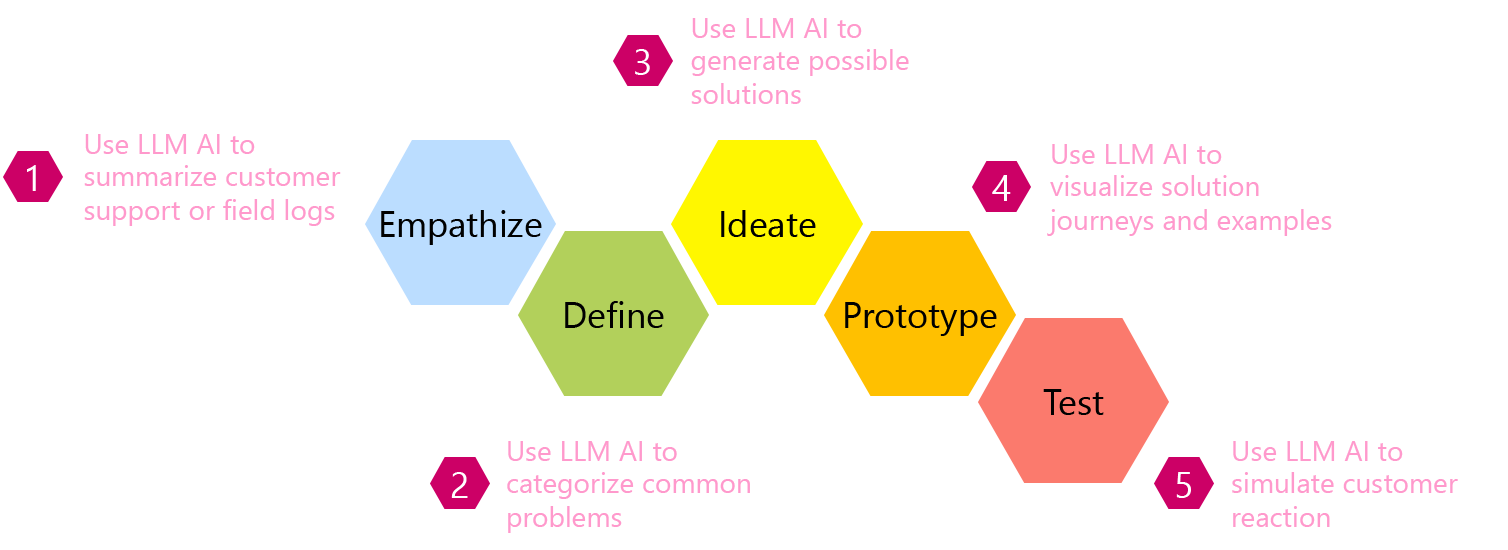Design Thinking
with Semantic Kernel
Jan Kirenz
Design Thinking

Setup
Python
Kernel
Plugins
Provide Input
Strength questions
strength_questions = ["What unique recipes or ingredients does the pizza shop use?", "What are the skills and experience of the staff?", "Does the pizza shop have a strong reputation in the local area?",
"Are there any unique features of the shop or its location that attract customers?", "Does the pizza shop have a strong reputation in the local area?", "Are there any unique features of the shop or its location that attract customers?"]Weakness questions
weakness_questions = ["What are the operational challenges of the pizza shop? (e.g., slow service, high staff turnover)", "Are there financial constraints that limit growth or improvements?",
"Are there any gaps in the product offering?", "Are there customer complaints or negative reviews that need to be addressed?"]Opportunities questions
opportunities_questions = ["Is there potential for new products or services (e.g., catering, delivery)?", "Are there under-served customer segments or market areas?",
"Can new technologies or systems enhance the business operations?", "Are there partnerships or local events that can be leveraged for marketing?"]Threats questions
threats_questions = ["Who are the major competitors and what are they offering?", "Are there potential negative impacts due to changes in the local area (e.g., construction, closure of nearby businesses)?",
"Are there economic or industry trends that could impact the business negatively (e.g., increased ingredient costs)?", "Is there any risk due to changes in regulations or legislation (e.g., health and safety, employment)?"]Strenghts
Weaknesses
Opportunities
Threats
Customer comments
customer_comments = """
Customer 1: The seats look really raggedy.
Customer 2: The garlic pizza is the best on this earth.
Customer 3: I've noticed that there's a new server every time I visit, and they're clueless.
Customer 4: Why aren't there calzones?
Customer 5: I love the garlic pizza and can't get it anywhere else.
Customer 6: The garlic pizza is exceptional.
Customer 7: I prefer a calzone's portable nature as compared with pizza.
Customer 8: Why is the pizza so expensive?
Customer 9: There's no way to do online ordering.
Customer 10: Why is the seating so uncomfortable and dirty?
"""Workflow for Empathize
Run kernel with plugin
Output
Output
Workflow for Define
Run kernel with plugins
- Kernel works sequentially (first uses plugin
Empathize, thenDefine)
Output
Output
Workflow for Ideation & Prototyping
Run kernel
Output
Output
Workflow for Evaluation
Prompt template
Test function
Example prototype idea
Run kernel
Output
Output
Acknowledgments
This tutorial is mainly based on the excellent course “How Business Thinkers Can Start Building AI Plugins With Semantic Kernel” provided by John Maeda and Andrew Ng
What’s next?
Congratulations! You have completed this tutorial 👍
Next, you may want to go back to the lab’s website
Jan Kirenz